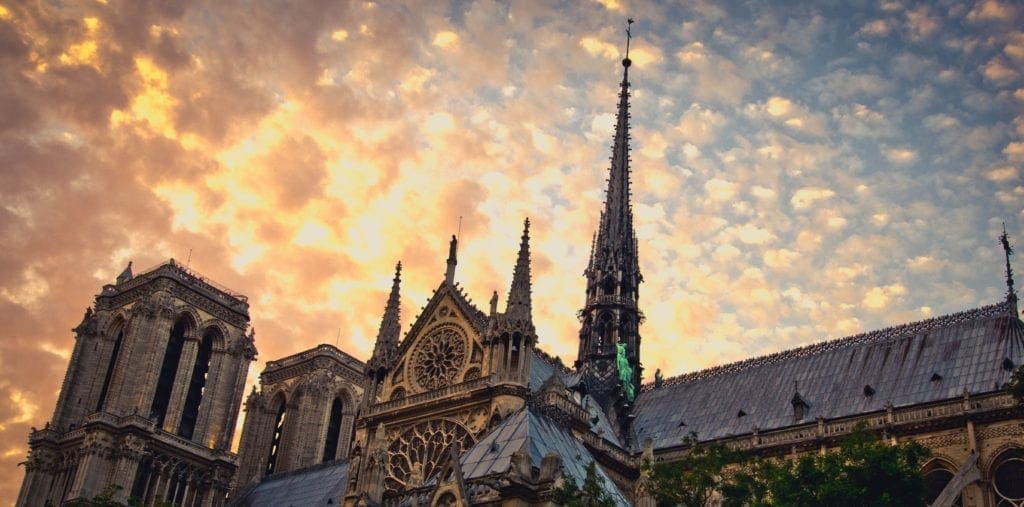Monday’s horrific Notre Dame fire wasn’t just an attack, even if figuratively, against a landmark cherished by the over one billion Roman Catholics worldwide. As Jeff Deist, the Mises Institute president, wrote, it was also a metaphor, however simplistic, for the decline of the West.
But what does that mean? And what does the cathedral, which was built in the 12th and 13th centuries, have to do with economics?
As it turns out, everything.

When Church and State Compete
Sir Kenneth Clark clearly explained in his 1960s show, Civilization, that Notre Dame is a testament to what civilized men and women can accomplish. But civilization itself cannot thrive without economics, as men cannot grow, prosper, and create without freedom. Unfortunately, we live in a world filled with influential politicians who choose to either deny or ignore the laws of economics, making us wonder if the conditions present in 12th century France that made Notre Dame possible will soon disappear.
As economist Ludwig von Mises explained, civilization “will and must perish if the nations continue to pursue the course which they entered upon under the spell of doctrines rejecting economic thinking.” And as Deist argued, when societies discourage the protection and creation of wealth and favor looting, the creation of a Notre Dame isn’t possible.
So as many celebrate the French state for promising to rebuild the cathedral, we seem to forget what the church represents in a broader sense.
As a sanctuary built to honor the Virgin Mary, Notre Dame serves as an example of how the lack of a centralized political power gives way to prosperity. After all, it was the competition between church and state in the middle ages that gave Europeans a taste of freedom.
To the common man then, the state was a careless ruler that lived off of plunder. The Church, on the other hand, offered moral authority over those who chose to follow its doctrine. While one was compulsory, the other was voluntary.
In the course of European history, there were many great examples of how the Church stood firmly against the state’s immorality, helping to provide an alternative and, most importantly, allowing man to flourish on his own accord. While Notre Dame served as the backdrop of several historical happenings, it is its role as a symbol of a powerful Church that says more about its importance, if only to remind us that, without a powerful force to keep it in check, the state will devour everything that stands in its way.
As you can see, it doesn’t take a Christian to see the symbolism of the Notre Dame fire, as Western civilization crumbles under the engulfing power of an ever-growing and centralized state.
When government has so much power over people, it becomes their religion. And what kind of moral code could the state teach, when its very existence relies on theft, deceit, and corruption?

























